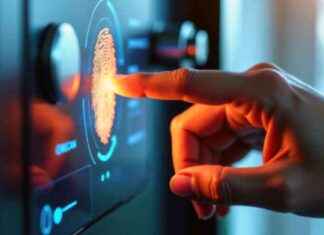Munich (dpa / lby) – In the NSU investigative committee of the Bavarian state parliament, one of the former accused in the Munich NSU trial was heard as a witness on Thursday. Carsten S., convicted of aiding and abetting, reported again about hints by NSU terrorists Uwe Mundlos and Uwe Böhnhardt about an attack on a Nuremberg restaurant. It was only after S. testified in the 2013 trial that the investigators were able to attribute an attack on the “Sonnenschein” restaurant in June 1999 to the NSU terrorists.
The two Uwes reported at a meeting that they had put “a flashlight” in a shop in Nuremberg – but it didn’t work, S said. In fact, the perpetrators had placed a pipe bomb disguised as a flashlight in the restaurant. A man who picked them up was injured in the blast.
The neo-Nazi terrorist cell “National Socialist Underground” – Mundlos, Böhnhardt and Beate Zschäpe – had been murdering through Germany for years. Their victims were nine traders of Turkish and Greek origin and a German policewoman. Apart from the crime in Nuremberg, Mundlos and Böhnhardt carried out two bomb attacks in Cologne, injuring dozens of people. The two killed each other in 2011 to avoid being arrested – only then was the NSU exposed. Zschäpe, the only survivor of the trio, was sentenced to life imprisonment in 2018 after more than five years of trial.
The aim of the second NSU investigative committee is, among other things, to clarify possible connections of the NSU to the Bavarian neo-Nazi scene. The deputies therefore asked S. about former contacts in Bavaria. S. reported on individual contacts between the right-wing extremist scene in Thuringia and individuals in Bavaria. According to his own statement, he was in Bavaria several times, for example at demonstrations. However, he was not aware of any organized cooperation between Thuringia and Bavaria, emphasized S. when asked. The hearing of witnesses did not initially bring any new findings that the NSU trial would not have brought to light in more than five years.
S., who lives in a witness protection program, was questioned in the state parliament under high security precautions. The press and visitors could only follow the statement, which was technically distorted, via video.






